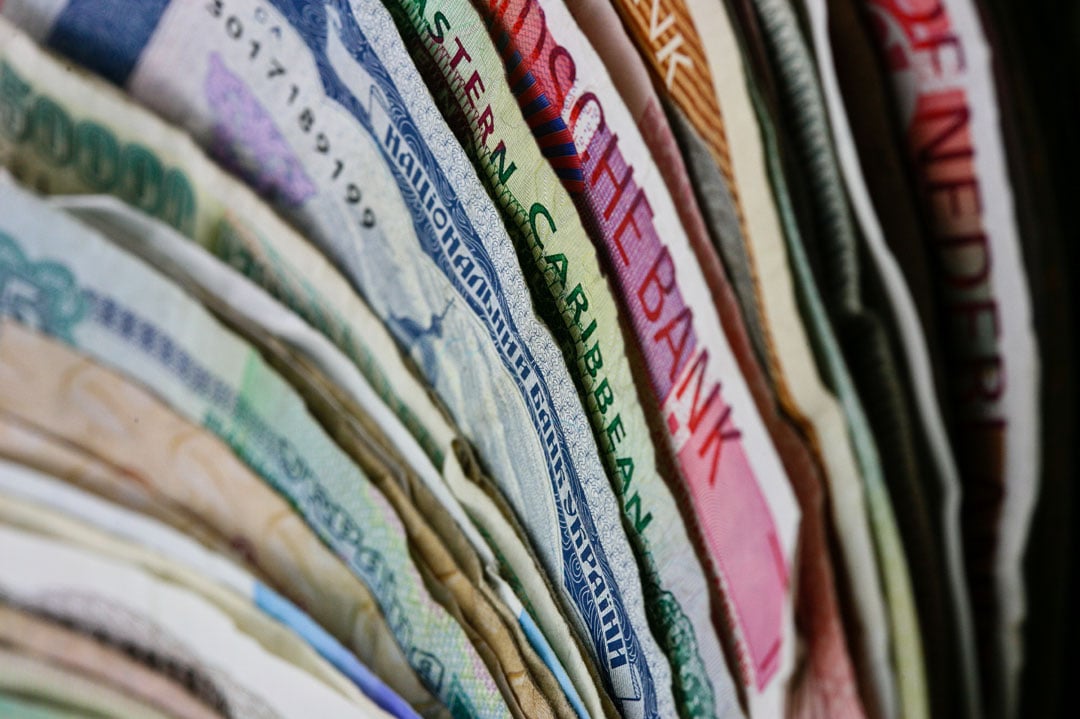In April 2024, exchange rates were most impacted by interest rates, inflation, and foreign investment. Nigeria’s currency has turned things around this month by cutting interest rates and lessening restrictions on investments. Kenya also continued a positive trend, thanks to the Eurobond sale. The Swedish krona and the Egyptian pound were both negatively impacted by high inflation. Zimbabwe announced a change in currency following a pattern of hyperinflation and devaluation.
Currencies Gaining Value Against the U.S. Dollar:
NGN – Nigerian Naira
The Nigerian naira has regained some ground after last month’s significant devaluation, which was put through by the Central Bank in the hopes of attracting foreign investors and moving the currency closer to the black-market rate. Subsequent to that devaluation, the Central Bank sought to curb inflation by cutting interest rates and lifting some existing restrictions on foreign investments. These strategies have succeeded in strengthening the naira almost 35% over the past month.
KES – Kenyan Shilling
The Kenyan shilling has continued to appreciate due to a number of driving factors. Kenya sold its Eurobond in February, which had positive effects that we continue to see today. The Eurobond sale increased confidence in the Kenyan shilling, leading to more foreign investments and more US dollars in the market, therefore strengthening the currency. The strengthening of the shilling helped lower import prices, resulting in a lower inflation rate.
Currencies Losing Value Against the U.S. Dollar:
SEK – Swedish Krona
The Central Bank of Sweden, the Riksbank, had announced plans to slowly reduce interest rates over the course of the year, based on various economic projections, including their expectation for inflation in Sweden. However, inflation has in some ways been lower than expected – though only for Goods; inflation for Services, which the Riksbank considers more strongly in their assessments, is higher than expected. Furthermore, the currency itself has weakened, against some expectations. This unexpected confluence of events has caused the bank to reconsider its intended schedule for reducing interest rates. Some sources predict there will still be a rate reduction in May, while others believe the subsequent planned reduction will be delayed.
EGP – Egyptian Pound
Egypt’s economy has been increasingly tumultuous in recent years. Highly dependent on imported goods, Egypt’s inflation rate was driven up significantly by the invasion of Ukraine and has indeed worsened with the conflict in Gaza. The country is now experiencing the biggest financial crisis in decades. In an effort to improve its situation, Egypt has secured aid from the IMF as well as a number of other sources, such as the EU, the UAE, and the World Bank. While this support hypothetically relieves the Egyptian economy, the public is expecting current hardships to get worse.
ZWL – Zimbabwean Dollar
Zimbabwe has announced the introduction of a new gold-backed currency called ZiG, which is short for Zimbabwe gold. This is intended to replace the existing currency, the ZWL (Zimbabwe dollar). The ZiG is their sixth attempt at introducing a functional currency in a little over 15 years. The country continues to struggle with extreme hyperinflation and currency devaluation. While the pre-existing currency was meant to be phased out slowly, there are reports that vendors are refusing to accept it anymore.
How do currency changes affect compensation?
For up-to-date figures, please reach out to your AIRINC representative or click here to reach our inquiries team now.
Subscribe to our blog to stay updated on changes around the world that impact Global Mobility, including your cost of living allowances.




%20(29).png)

%20(31).png)

